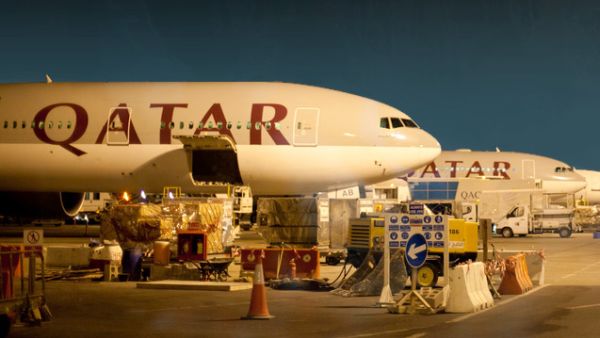Qatar has announced a new draft law that seeks to protect and boost national products and combat practices that may harm them in international trade. The law is expected to boost national industry and encourage investors to start various manufacturing projects in the country.
Qatari daily Arrayah reported yesterday that a considerable number of Qatari businessmen, economic experts and specialists in related fields stressed that the law, which was approved by the Cabinet recently, when enforced would address the concerns of local producers and give them the necessary security and stability for their investment.
- Qatar To Double Production Of Food Items As It Deals With Saudi-Led Blockade
- Qatar Ban: Qatari Businessman Flies In 4,000 Cows To Boost Local Milk Production
The key location of Qatar would make it easy to export products outside the country to different Arab, African and Asian markets, they noted.
Accordingly, there are expectations that more investments would pour into the fields of food and medicine industry, in particular small and medium-sized factories.
Saud al-Hinzab, former chairman of the Central Municipal Council, said that the new draft law and its regulations represente a change of concept within the local society and involves a trend towards boosting production and more investments.
Al-Hinzab expected that the upcoming period would see the introduction of many small and medium-sized manufacturing projects in addition to new investments in heavy industries.
He also called for more measures to encourage local products and support them, especially that many of these products enjoy high quality and competitive prices.
Dr. Abulaziz al-Hammadi, an economic expert and CEO of a brokerage company, said the cabinet approval of the draft law came at a very critical time.
- Qatar's Revenues From Gas Exports Enough To Withstand Siege: Minister
- Qatar Eyes Self-Sufficiency In Food, Medicine Products
Al-Hammadi pointed out that Qatar used to buy products from the neighbouring countries before the blockade imposed by Saudi Arabia, the UAE, Bahrain, and Egypt,. However, after the blockade Qatar started to be more self-dependent and the private sector has been encouraged to invest in local industries.
Qatari businessman Ahmed al-Khalaf considered endorsing this draft law as an unprecedented legal achievement for the country that would complement other legislation in protecting local production against unfair competition practices.
Al-Khalaf stressed that it was necessary and a very important decision that came at the right time.









